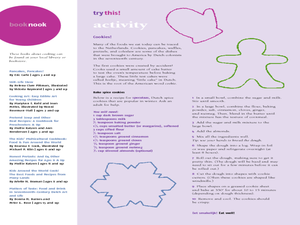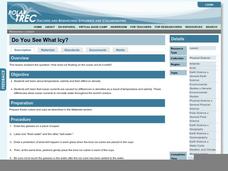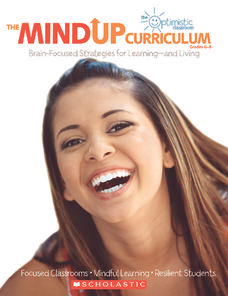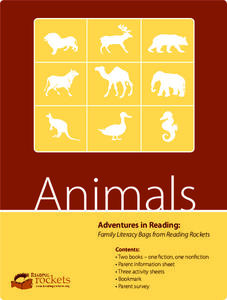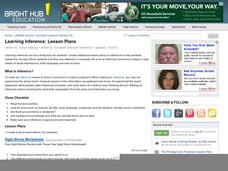Curated OER
Paintings of food
Students study and discuss the paintings of different foods. In this food lesson plan, students read about paintings that are of treats, banquets, feasts, arrangements, and more, and then make cookies.
Chymist
Build a Spectroscope
Assist your emerging scientists with construction of their very own spectroscopes. Individuals construct a spectroscope to identify elements used in varying lights within a particular environment. They conclude the activity with a...
Polar Trec
Animal Monitoring Introduction
Not only do mealworms taste great, they are also great for classroom science lessons. In pairs, young scientists observe and record what they see as they check out what their mealworms are doing from minute to minute. Each minute...
Polar Trec
Do You See What Icy?
Here is a lesson plan that kicks off with a question. "How does ice floating on the ocean act as it melts?" As learners investigate this natural phenomenon, they'll discover that it has a lot to do with temperature, salinity, and the...
Curated OER
What Goes Down Must Come Up
Third graders explore the capillary action of plants. They discover what makes paper "grow" when water is dropped on it. Pupils observe how paper reacts as it absorbs water. Students use a variety of saturate solutions to grow crystals,...
American Farm Bureau Foundation for Agriculture
My Miniature Greenhouse!
Here is an activity that will peak your super scientists' interest and knowledge of greenhouse gardening. Green thumbs flourish when they build, prepare, take care of, and observe their seedlings inside a miniature greenhouse. With...
Curated OER
On the Right Circuit
After a discussion on how to make a light bulb light up in an electrical circuit, young scientists take a look at four circuits, and they choose the one they think will make the lightbulb light up. Use in conjunction with any initial...
Teach Engineering
Backyard Weather Station
Challenge young meteorologists to apply their knowledge of weather to build their own weather stations. The resource provides the directions to build a weather station that contains a wind vane, barometer, thermometer, and rain...
Curated OER
Drugs Can Be Good and Bad
How can you tell which drugs are helpful, and which drugs are harmful? Use a health learning exercise in your kindergarten class to determine which drugs can make you healthy. They choose from a group of pictures that includes cough...
Rainforest Alliance
Knowing the Essential Elements of a Habitat
To gain insight into the many different types of habitats, individuals must first get to know their own. Here, scholars explore their school environment, draw a map, compare and contrast their surroundings to larger ones. They then...
Curated OER
Be Kind to Your Teeth
What kinds of food can be bad for your teeth? Kindergartners and first graders explore dental health with an interactive science inquiry. Given a choice of foods such as celery, cake, and milk, kids choose which ones are better for their...
Curated OER
Deformed Frogs! - The Parasite Hypothesis
This project provides students the opportunity to investigate parasites as a possible cause of the observed frog deformities. It asks students to view web-based evidence and interpret whether it supports the parasite hypothesis. Students...
Curated OER
Recognizing Litter
When does trash become litter? Use this litter awareness lesson to help them understand the importance of trash disposal. Get learners engaged by reading Nancy Loewen's Lady Lulu Liked to Litter (not included). After discussing what...
Laboratory for Atmospheric and Space Physics
Planetary Distances on the Playground
There's no need to stay inside; get out of the classroom and create a scaled map of the solar system on your playground field! In collaborative groups, scholars identify the distance between the sun and other planets, place planet...
Michigan State University
In Search of Life
Explore the habitats around you with an activity that takes kids out of the classroom to learn about the local variety of habitats and the living things that call them home. In small groups, scholars investigate their surroundings,...
Curated OER
Geometry Vases: Ceramics Lesson
Geometric shapes are used in math and in art. Learners discuss the various names, dimensions, and attributes of geometric shapes, then apply that knowledge to design a vase. They use 3-D shapes to make a cubist-style vase out of clay.
American Chemical Society
Energy and Entropy of a Stretched Rubber Band
Stephen Perry invented and patented the modern rubber band in 1845. Young scientists put his discovery to work as they use rubber bands to observe entropy and enthalpy. They determine the change in free energy to figure out if it...
Curated OER
Create your own Parfleche!
What is a parfleche? It is a box used by the Plains Indians to carry goods as they traveled. First, the class will discuss the uses of these highly ornate boxes and the nature of the Plains Indians' nomadic lifestyle. Then, the class...
Scholastic
Mindful Listening
Teach your middle schoolers to use their ears to their highest potential! Pupils practice active listening skills and reflect on how careful listening might prove to be important in and out of the classroom.
Facing History and Ourselves
Fishbowl Discussion
Filter young teenagers' opinions and perspectives with a classic fishbowl discussion. Given any topic relevant to your curriculum, a group of class members engage in discussion for their peers to observe.
Cornell University
Friction
Friction and gravity are always at odds! Learners complete a set of activities to explore the relationship between friction and gravity. Groups make conclusions about the factors that affect the amount and type of friction between surfaces.
Curated OER
1984 by George Orwell
Readers of Nineteen Eighty-Four engage in a close reading exercise that directs their focus to the key details Orwell provides in the opening paragraphs to introduce his dystopian society. The included worksheeet is divided into three...
PBS
Reading Adventure Pack: Animals
Scholars explore the animal kingdom with help from two texts, Blueberries for Sal by Robert McCloskey and A Bed for the Winter by Karen Wallace. The literature and informational text set the learning stage for thoughtful discussion and...
Curated OER
Learning Inference
Making inferences can be a tricky proposition for middle schoolers. In the lesson presented here, pupils practice the skill of drawing a conclusion and making a judgment - which are what making an inference is all about! There are five...
